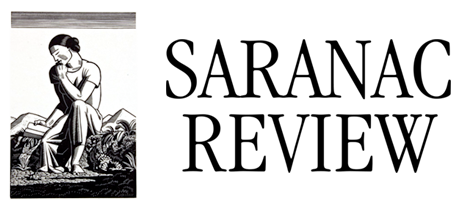The books that read me
I owe my lifelong love of reading to my grandparents. On evenings when I was little, I would read out loud to them from Mary Pope Osborne’s Magic Tree House while their cat Mopsy purred on my lap. After about five minutes of story time, my grandfather would start to snore, but my grandmother always urged me to keep reading. If a bookstore ever stood in our path, my grandparents made sure to take me there, and truthfully, a bookstore excited my childhood self more than a candy store. In high school, my grandparents convinced me to like poetry with a copy of Mary Oliver’s Devotions. Without them in my life, years of school might have made me hate reading, as they have for so many people who never touch a book after graduation.
I still distinctly remember my sixth-grade teacher scolding me in front of my class for reading a nonfiction book on paleontology that was well-above sixth-grade reading level. “I don’t want to see these books in the room,” she told the class that day. Her favorite students were reading Percy Jackson, the kind of material she did want to see in class.
Reading, it seems, is my way of rebelling. Confident I could read even the books that challenged me, I was able to teach myself more about the world than my sixth-grade classroom could. For me, the books themselves were the teachers. I followed field guides covering botany and minerology into the wilderness in search of wildflowers and garnets, my love of nature already amplified by a dusty copy of Jean Craighead George’s My Side of the Mountain I had borrowed from a teacher the year before. Jane Langton’s The Fledgling, a tale about a girl who learns how to fly after befriending a Goose Prince, only heightened my childhood longing to escape the machine of modern society.
My junior year of high school, the teacher assigned scant excerpts of books, none of much interest to me. Mostly, we watched the movies inspired by the books. Thankfully, my sophomore English teacher made us read, including my favorite book of all time, Eli Wiesel’s Night. Seeing my copy of the book on the kitchen table, my father mentioned meeting Wiesel as part of his Holocaust Literature class in college. In my own time, I would go on to read my father’s old copy of Simon Wiesenthal’s The Sunflower, then Viktor E. Frankl’s Man’s Search for Meaning. The dreaminess of the books I read in my youth gave way to a string of very real-world nonfiction accounts of crimes against humanity. History class had really brushed over things. Some of the other books I read during this time were Luis Alberto Urrea’s The Devil’s Highway, Ante Nazor and Anica Maric’s The Siege of Vukovar, and Hammond Innes’ The Conquistadors. The only way I can easily describe the effect these books had on my worldview would be to compare the experience to a young, sheltered Buddha first seeing a corpse. I was already very familiar with death by that age, and in many ways I had seen fucked-up things with my own eyes, but these books completely peeled back youth’s curtains to reveal the reality of a world scarred by infinite cruelty. Back in school, the world was safe, supportive, career-oriented. Now it seemed that any nightmare was possible.
Thankfully, I had other books to remind me that good and beauty also existed in this world. Sy Montgomery’s The Soul of an Octopus taught me that this good and beauty could be found in anything. Reading Robin Wall Kimmerer’s Braiding Sweetgrass in a hammock with the birds singing in the branches above, I began to ponder more deeply a future where more of this good and beauty was possible — how we could evolve, as a species, and bring about a new, better age. Bernd Heinrich’s Life Everlasting, a scientific contemplation on death in the natural world, helped me to feel at peace in the now, wherever I stood.
The books I’ve read have guided me through life in all its stages and states. Without them, I can confidently say that I would not only be a less interesting person, but also a less well-rounded person. Books and reading will always be a part of my search for meaning in a world that very often feels meaningless, and it seems that with each new title I finish, I shed an old skin, and step back into the world anew.

